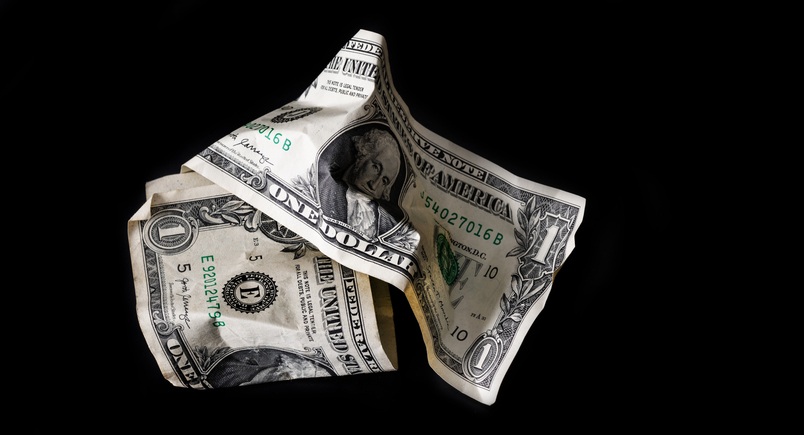As everyone in the entire world knows by now, or should, Serbian nationalist Gavrilo Princip assassinated Archduke Franz Ferdinand of Austria in Sarajevo last night.
Hey, wait a second. That isn’t right. No. Last night, Israel attacked multiple strategic targets in Iran with the intent of destroying that nation’s nuclear capabilities. Yeah, that’s what happened.
Today, as I type at 1:36 pm CDT, it seems the situation has gone from really bad to even worse in the Middle East. Iran has responded by lobbing “hundreds of various ballistic missiles” at Israel. Meanwhile, the Israelis continue to pound facilities across Iran.
Obviously, this is an extremely worrisome situation, as it has the potential to escalate rapidly across the region. Not surprisingly, stock markets around the world are down on the news.
- Earlier today, the Nikkei 225 in Japan was down 0.89%, and the Australian S&P/ASX 200 Index slumped 0.21%.
- A little closer to home, the FTSE 100 in London fell 0.39%.
- The primary German stock market gauge, the DAX, was in the red to the tune of 1.07%, and France’s CAC 40 limped home off 1.04%.
- In North America, as of 1:48 pm CDT, the S&P 500 is down around 1.25%, and Canada’s bellwether benchmark, the S&P/TSX Composite is off 0.45%.
If those numbers seem better than you would have expected, well, they do to me as well. In fact, I would go so far as to say I am pretty surprised the markets haven’t freaked out more than they have. Shoot. Ill-timed tweets by our man in the White House has caused more investor consternation than the current Israel-Iran brouhaha.
Don’t get me wrong, down days are never fun. But today’s price action, and others might disagree, has seemed strangely devoid of any real panic. In fact, at 11:18 a.m. CDT, the S&P 500 hit 6026.16… down only 19 points for the day. True, it has fallen since that point. However, U.S. stocks being down only 0.32% halfway through the trading day—despite a potentially nightmarish scenario unfolding in the Middle East— is surprisingly muted.
That struck me as kind of odd. Do you want to know what else I find more than a little weird? Let’s try the U.S. Treasury market selling off as missiles fly over Tel Aviv, Jerusalem and Tehran. By selling off, I am talking about the 2-Year Note being in the red all day long AND the 30-Year Bond being down as much as 1-14+. That is 1 point and 14.5 32nds.
Don’t U.S. Treasuries tend to rally during periods of geopolitical turmoil and/or market distress? Haven’t we always called that a “flight to quality?” The thought process being investors want the perceived credit safety and liquidity of U.S. Treasury debt when things look bleak?
That… no matter what, the United States will pay back its debts come [heck] or high water?
Yes, that has normally been the case. In fact, I can’t immediately think of another time when Treasuries actually fell when something like this happened. Sure, the Russian invasion of Ukraine on 2/24/2022 didn’t upset the U.S. bond market terribly much. However, investors were anxiously awaiting a Fed rate hike, which they got on 3/16/2022.
They didn’t want to be stuck “holding the bag” in a rising interest rate environment. Particularly over a conflict which didn’t have as much true potential to expand as this one does. We will have to agree to disagree if you don’t approve of that last sentence.
But now? Pretty much everyone with gray matter between their ears believes the next Fed move is a rate cut, which should benefit the shorter-end of the yield curve. So, that shouldn’t be why investors aren’t flocking to the 2-Year Treasury and shorter maturities today.
So, what’s going on here? Are the world’s former ‘risk-free’ assets no longer risk-free?
Frankly, I think that might go without saying. There is NO way a sane investor can look at a $36+ trillion pile of debt, and growing rapidly, and not be at least a little concerned about it. Then, there is the question of the domestic ruling class. What about it would make, say, a foreign investor fired up about buying Treasury debt?
A recently published report by the Pew Research Center (Pew) hints at what could be part of the problem: the rest of the developed world holds the current Administration in pretty low regard. If you aren’t familiar with Pew, it is a nonpartisan think tank which covers a variety of social, demographic, economic and political issues. I have read its material for years, and haven’t been able to find much of a political bias one way or the other.
Now, as for what it says about President Trump, I will let you follow this link to read the data/analysis for your yourself. I think it fair to say, if Pew’s methodology is accurate, he wouldn’t win a popularity contest outside of the United States.
However, what is important to note is that, historically, foreign investors have seemed to favor Democratic, arguably more globalist, U.S. Presidents. The more nationalistic the Administration, the less popular it is everywhere else. That isn’t terribly surprising.
So, what are foreign investors to think about an overly indebted country which has been busy slapping tariffs and making threats on the remainder of the world? Throw in the apparent disfunction in Washington, with the corresponding lack of desire to do something about our profligate spending, and is the United States the “flight to quality” we think it is? Or should be?
That is a great question.
When you are dependent on other peoples’ money, it is generally best to not antagonize them. No, we don’t have to kowtow or otherwise be subservient to the rest of the world. We just simply have to be aware of our financial condition, and how important foreign capital is to keep our “books in order.”
In truth, if foreign investors and central banks don’t gobble up a decent chunk of the roughly $20 trillion in additional debt the Treasury will have to issue over the next decade, the cost of money in the U.S. economy will go up. This means things will be that much more expensive for you and me. No, that isn’t a threat. That is a promise.
So, in the end, the Middle East is on the brink of war, and the U.S. bond market didn’t behave the way it should. Investors sold Treasury debt, implying they don’t believe the U.S. is the “flight to quality” it once was.
In the short-term, this is more confusing than concerning. However, when push comes to shove, we need foreign capital and foreign capital needs the United States to be involved. That doesn’t mean either side has to be real happy about it.

Chief Economist
Thank you for your continued support. As always, I hope this newsletter finds you and your family well. May your blessings outweigh your sorrows on this and every day. Also, please be sure to tune into our podcast, Trading Perspectives, which is available on every platform.
Please note, nothing in this newsletter should be considered or otherwise construed as an offer to buy or sell investment services or securities of any type. Any individual action you might take from reading this newsletter is at your own risk. My opinion, as well as those of our Investment Committee, is subject to change without notice. Finally, the opinions expressed herein are not necessarily those of the rest of the associates and/or shareholders of Oakworth Capital Bank or the official position of the company itself.


